polarization

In August 2022, Mennonite minister Rev. Michael Gulker brought together 12 pastors of different denominations from Grand Rapids, Mich., with a unique proposal — to spend a year together exploring their differences with the hope of finding a way beyond them.

Many of us are feeling fear, disorientation, or anger at this moment. As Christians, we need to meet perilous feelings with a resolve to follow Jesus and remember his teachings: The truth will set us free, and we must learn to love our enemies.
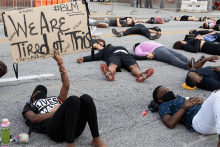
I know I’m not alone in feeling exhausted. In 2018, More In Common — a nonprofit that researches what’s driving political polarization — found that two-thirds of Americans share a series of characteristics that make them a part of what they call the “exhausted majority.” This group of people is “fed up with the polarization plaguing American government and society,” feels forgotten in the public discourse, and often has flexible views that don’t fit consistently in the Left/Right binary. Yet, they believe we can still find common ground. Sound familiar?

The Parkers wanted to limit small talk at their annual family Christmas party, fearful that conversation would veer into politics, or religion, or whether Pete Davidson is unconventionally attractive. So they organized a harmless white elephant gift exchange. By night’s end, they would be full of carbs and regret, vowing to play charades next year.
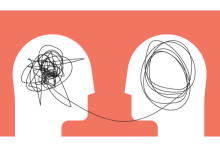
If the empathy debate teaches us anything, it’s that for all its power, empathy on its own will not solve our problems.
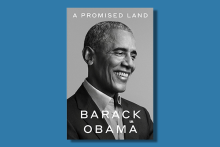
The scripture-inspired title of Obama’s latest book comes from the idea that a better America ― one that lives more fully into its democractic promise ― is still possible. “[E]ven if we experience hardships and disappointments along the way, that I at least still have faith we can create a more perfect union. Not a perfect union, but a more perfect union,” Obama told CBS 60 Minutes correspondent Scott Pelley in a Nov. 16 interview.
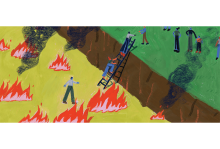
THE PEOPLE HAVE spoken, democracy has worked, and it is time for a peaceful transfer of power. Joe Biden and Kamala Harris have fairly won the presidential election, and I am hopeful about their commitment to both healing and change. We should accept the results, and call upon our faith communities to do the same, in order to help our nation move forward together.
We should be grateful for and inspired by the ways our faith communities worked for free, fair, and safe elections in 2020. Thousands of multiracial and interfaith poll chaplains helped to protect vulnerable voters from both suppression and intimidation at the polls and helped secure this election.
Racism was recognized as a religious issue in this election—and we must commit to a much deeper, and even uncomfortable, conversation in the body of Christ about the great and painful divisions between white Christians and believers of color that this election has again revealed. Addressing systemic racism, economic injustice, inhumane immigration policies, and climate change—all of this is required as expressions of our faith. Let us begin with healing our nation from the COVID-19 pandemic and then from our polarized divisions with grace and love and the reconciliation that comes from working together to build a more racially just and inclusive America.

Politics has always involved disagreements, but it’s not the same as it ever was in today’s United States. Something has changed. In a national survey we at More in Common conducted last month, fully 87 percent of Americans said that they feel the country is more divided than at any point in their lifetimes.

There is a story in our family lore that during a contentious presidential campaign a few decades ago my father refused to drive his mother, my grandmother, to the polling station on election day. She was voting for the opposing candidate and he didn’t want her to cancel out his vote. Though contentious at the time, it is a story that still evokes laughter in our family each time it is retold. And don’t worry — grandma eventually got a friend to drive her to the polls.

For years, I’ve had a rocky relationship with the news. I love to know what’s going on in the world, but I can’t help but notice that the news sources I read all present the story from a definite slant. More and more over the last couple years, I’ve felt like I’m doing battle with the newspaper every morning. Each day, the media machine is telling me who I should vote for, what to buy, what new disease to fear, and who my country should kill.


Like many things — theological beliefs, worships styles, forms of baptism, and preferred interpretations of the Bible — Christians are divided when it comes to which social justice issues, culture wars, and current events are worth supporting and condemning or even talking about.
Followers of Christ can be against gay marriage or for it, Democrat or Republican, a pacifist or a soldier, a vegan or a meat-eater, an animal rights advocate or a hunter — Christians constantly contradict one another, and that’s OK.

Last month we went to Disney World — a perpetual feast for the senses. But. For someone like me who needs to get alone for a little daily contemplation, it can be a bit overwhelming. Except for one saving grace: It's a Small World.
I was 17, I think — and much less self-aware, I know — when I first climbed aboard the jolting, jostling little boat that would carry me to "distant shores" through the rooms filled with dolls all singing the same song. There were different languages and different clothing styles. The customs represented varied as greatly as the terrain upon which they were stationed. Some sang among mountain peaks, others on desert plains. Some bundled in parkas and earmuffs, others in grass skirts and leis.
And I don't know what it was — the change in pace from the exhilarating roller-coaster-kind-of-rides or the welcome blast of air conditioning — but there was something stilling about watching all these representatives of different peoples mouthing words to the same tune. There was a deeper message in it for that ponytailed teenager. Depths that it would take me years to plumb.
A small, small world. Indeed.
*******
Days after Maya Angelou's passing, I posted a few of her beautiful words on Facebook:
"If you must look back, do so forgivingly. If you must look forward, do so prayerfully. However, the wisest thing you can do is to be present in the present ... gratefully."
Pretty amazing words, right? What could possibly be the offense in them? Within minutes a comment popped up, the gist of which was to deny the beauty and wisdom of the words for the sake of Angelou's apparently deviant beliefs about abortion (specifically, deviant according to this commenter).
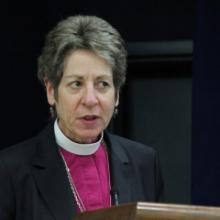
WASHINGTON — Twenty-five top Christian leaders gathered in the U.S. city with perhaps the worst reputation for civil discourse Wednesday and committed themselves to elevating the level of public conversation.
Meeting in a row house three blocks from the U.S. Capitol, the group spanned the Christian spectrum, and included officials from liberal churches and the most conservative of interest groups.
“The ground of our spiritual understanding is in treating other people as the image of God, treating people with respect,” said Episcopal Presiding Bishop Katharine Jefferts Schori.
“Faith leaders have a remarkable opportunity to shift the conversation, but it’s very challenging, particularly in a larger society that wants to understand everything as a battle, as engaging the enemy, rather than with someone who might have something to teach us,” she said.
THE CHURCH IS locked in a polarized debate around same-sex relationships that is creating painful divisions, subverting the church's missional intent, and damaging the credibility of its witness. We've all heard the sound-bite arguments. For some, condoning or blessing same-sex relationships betrays the clear teaching of the Bible, and represents a capitulation to the self-gratifying, permissive sexual ethic of a secularized culture. For others, affirming same-sex relationships flows from the command to love our neighbor, embodies the love of Jesus, and honors the spiritual integrity and experience of gay and lesbian brothers and sisters.
The way the debate presently is framed makes productive dialogue difficult. People talk past one another. Biblical texts collide with the testimony of human experience. The stakes of the debate become elevated from a difference around ethical discernment to the preservation of the gospel's integrity—for both sides. Lines get drawn in the ecclesiastical sand. Some decide that to be "pure" they must separate themselves spiritually from others and break the fellowship of Christ's body. Then the debate devolves into public wrangling over judicial proceedings, constitutional interpretations, and property ownership. Meanwhile, the "nones," those who are walking away from any active relig-ious faith, find further confirmation for their growing estrangement.
Mirroring the dynamics of contemporary secular politics, the debate is driven by small but vocal minorities with uncompromising positions at one end or another of the spectrum. For the majority in the middle, who may be unclear about their own understandings, exploring their questions is made difficult because of the polarized toxicity of the debate. Further, those in positions of leadership in congregations or denominations come to regard the controversy over same-sex relationships as the "third rail" of church politics. They don't want to touch it. I know this because I've been there myself.

NEW YORK — The "October trifecta" that touched my life — my father's death, surgery the next day, and the unprecedented destruction of Hurricane Sandy around New York — did what traumatic events often do.
They left me emotionally fatigued and ready for some fresh clarity, fresh perspective, and fresh prioritizing.
When life seems fragile, it's clear some things matter more than others. It reminds us that attention must be paid to family, friends, and the differences we make in our work and our faith. Lesser concerns — like the tablet computer I have been angling to acquire — quickly fall away.
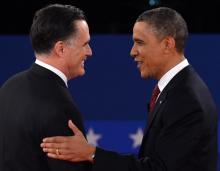
The presidential election is only weeks away… and it’s getting ugly out there. I mean … really ugly.
And before you think I’m just talking about the political process, the political parties, or the respective candidates, I was actually talking about you, me, us, and them … the people. And by people, I’m also especially talking about Christians.
Sometimes, I feel it would be appropriate to label how some Christians engage the presidential election season as “Christians Gone Wild."
Since there’s sure to be drama this week and next following the debates — and each day leading up to Election Day on Nov. 6, and likely some weeks afterward — I thought I’d share with you my 10 Commandments of the Election Season for Christians in hopes that it might speak some balance, sense, and perspective to any readers, not just during this election season but thereafter; not just in this country but in any country.
Why else am I sharing this?
Because I really want you to still respect yourself the morning after the election season.
Because I really want your friends to still respect you, too.
Know what I mean?
So, here are my 10 Commandments of the Election Season
It’s been a bad year, and the 2012 election year looks to be even worse.
Don’t get me wrong — there were many good and even wonderful things about 2011. I can point to weddings, great things in our family lives, wonderful moments with our children, acts of courage in our local and our global communities, and heroic accomplishments by people of faith and others of good will.
But when it comes to politics and to the media, 2011 was an abysmal year.
Washington is a dysfunctional place where we make the most important decisions about how our public resources should be allocated amidst artificial deadlines set entirely by ideological politics instead of the common good. Rational, thoughtful ideas for reducing the national deficit (while at the same time protecting our vital social safety nets and producing needed jobs) have been replaced by the politics of blame and fear.
And winning — at seemingly any cost — has trumped governing. To disagree with the opposition isn’t enough. Now politicians and pundits feel compelled to destroy their opponents’ character, integrity, patriotism, and even attack their faith.